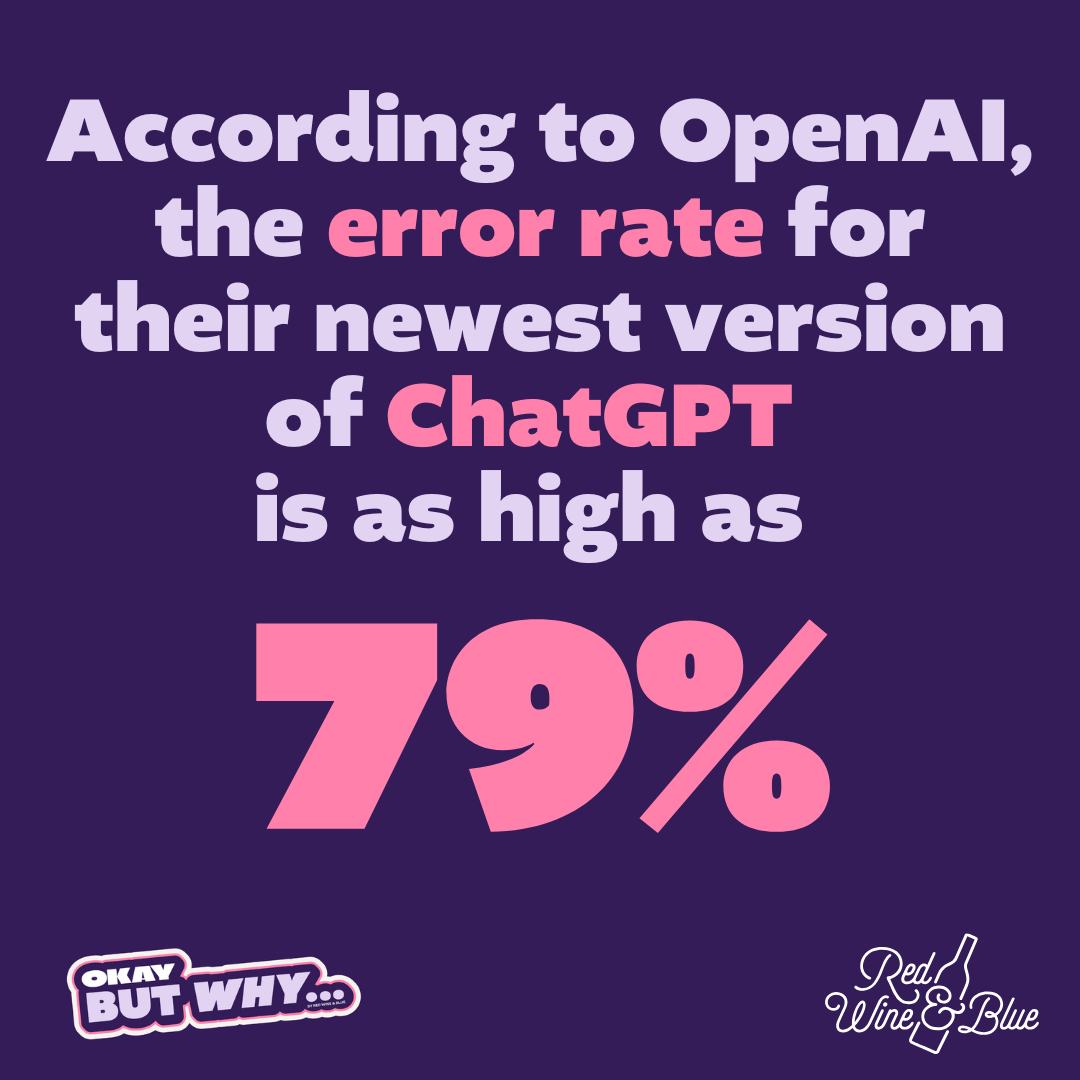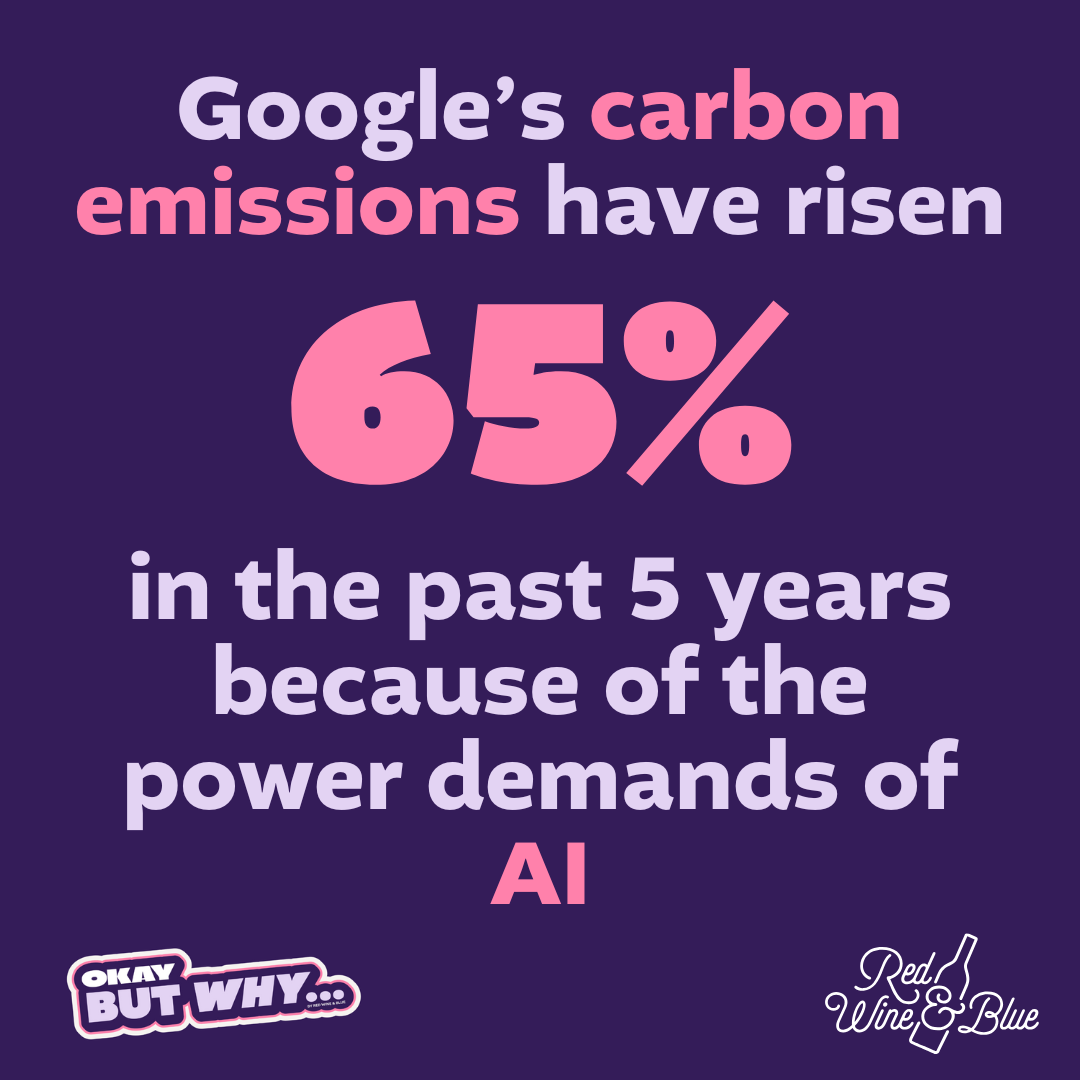
Okay, But Why is AI a concern?
Artificial Intelligence (AI) has enabled some incredible scientific breakthroughs, like new tests for cancer and new tools to communicate with humpback whales. It can analyze data much faster than humans and see patterns that we can’t, which makes a lot of scientists excited about what discoveries AI will bring us in the future. It’s good for accessibility, from self-driving cars for people who aren’t physically able to drive to writing assistance for those with learning disabilities. And programs like ChatGPT are making our basic web searches or simple life tasks easier — or so it seems!
Is AI actually intelligent?

AI is useful, but it also presents a lot of dangers. Disinformation on the internet is already a huge issue and AI is making things worse. AI-powered social media algorithms prioritize outrage and clicks over accurate information. Then there are “Deep Fakes,” which are images, videos, or audio that seem real but are actually created by AI. They can be used to show people saying or doing something that they never actually did in real life. And scammers are already using AI to mimic the voices of people’s loved ones, or their managers at work, to trick victims into paying them money.
Sometimes, the misinformation is less intentional. ChatGPT often makes factual mistakes when summarizing articles or emails. These mistakes are called “hallucinations.” They happen because AI models use mathematical probabilities to decide how to respond, rather than actually understanding what they’re saying like a human would. According to tests done by OpenAI, the hallucination rates of newer AI systems were as high as 79%!
AI at school and in the workplace
More and more students are using ChatGPT to complete assignments, bypassing the most important part of school: actually learning. The United States already had a serious problem with literacy before the rise of AI. Around 40% of students across the country can’t read at a basic level, and that rises to almost 70% of low-income students. How much worse will the problem get now that they’re using ChatGPT to read and write for them?
Once these students enter the workforce, they may have even bigger problems. AI automation cuts down on time-consuming busy work, but it’s also taking over many entry-level jobs. A study from the McKinsey Institute estimated that by 2030, at least 300 million full-time jobs could be lost to AI automation.
AI impacts relationships and the environment
AI is fundamentally changing the way we think and communicate with each other. One-third of Americans say they use ChatGPT to write and summarize their emails. At a certain point, we’re going to have chatbots reading and writing most of our communications, with no genuine human connection to be found.
A quarter of Americans under the age of 30 say they’ve used AI for companionship, talking with ChatGPT instead of real people in their lives. They’re even using it as a therapist – a YouGov poll found that more than half of people ages 18-29 said they felt comfortable replacing their human therapist with AI. There are serious dangers with this. AI often encourages unsafe behaviors and delusions. In one tragic case, a Florida mother is now suing a tech company over an AI chatbot that she says encouraged her 14-year-old son to kill himself.
And the environmental impact of AI can’t be overstated. The complex computer systems that run AI use a huge amount of electricity as well as water to cool the systems as they heat up from all that processing. One ChatGPT query consumes about five times more electricity than a simple web search. Tech companies have been abandoning their environmental goals because of AI – in fact, Google’s carbon emissions have gone up by 65% just in the past 5 years.
People have dreamed of the day that machines can take over our mundane and mindless tasks, but instead, right now AI is taking over the things that make us the most human: learning, communicating with each other, and friendship. We can’t stop the forward march of progress, but we need to be very mindful of the world we’re creating. Genuine connection is the most valuable thing we have. It’s what makes us human. Let’s make sure we don’t lose it.

Looking to make some genuine connections with like-minded women in your area?
